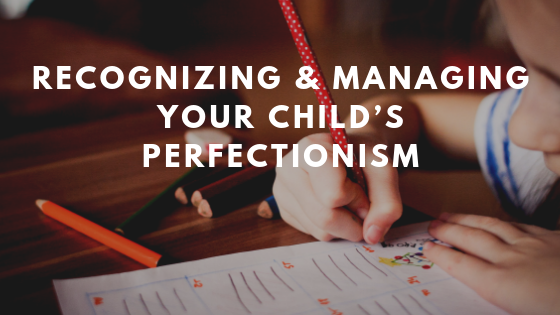You want your child to succeed and feel accomplished within academics, extracurriculars, or any skill they are pursuing. However, when children strive for unattainable perfection, it is hard to know how to respond. Unhealthy perfectionism can involve a fear of inevitable mistakes and unrealistic standards. Of course, we want our children to be motivated to achieve success, but perfectionism may lead to discouragement and lower self-esteem. It is important to manage your child’s perfectionism before it contributes to anxiety, self-criticism, and unhappiness. By instead accepting failure as part of the learning experience, we can use mistakes as an opportunity to promote and instill confidence and optimism.
So, how can you identify and respond to your child’s perfectionism to best support them?
Recognizing Perfectionism in Children
- Frequent meltdowns when things don’t go “perfectly” or as expected
- A tendency to be highly self-critical
- Become anxious, angry, or upset about making mistakes
- Refusal to try new things (avoidance or fear of failure)
- Chronic procrastination
- Being overly cautious (spending 2 hours on a task that should take 20 minutes)
- Inflexibility
- Difficulty completing and prioritizing tasks
Manage your Child’s Perfectionism
Replacement
Identify self-critical and rigid statements and begin to “re-do” these statements by replacing them with more positive, helpful ones. “All I can do is my best!”
Reframe Perfectionism
Engage your child in discussions involving both of your mistakes, setbacks, and criticism you have faced. Rather than errors being signs of failure, interpret them as signs of learning and growth.
Encourage Risk-Taking
Challenge yourself and your child to face difficult activities and make mistakes to continue trying again!
Modeling Behavior
Exercise patience and acceptance in response to errors rather than becoming angry and negative. In doing so, you will promote risk-taking and increase their confidence in their capacity to do well.
Set Realistic Schedules
Work with your child to write down a goal and work backward by setting manageable mini-goals with built-in rewards for each step. Thus, the goal is to complete the task at each stage, not to make it perfect!

